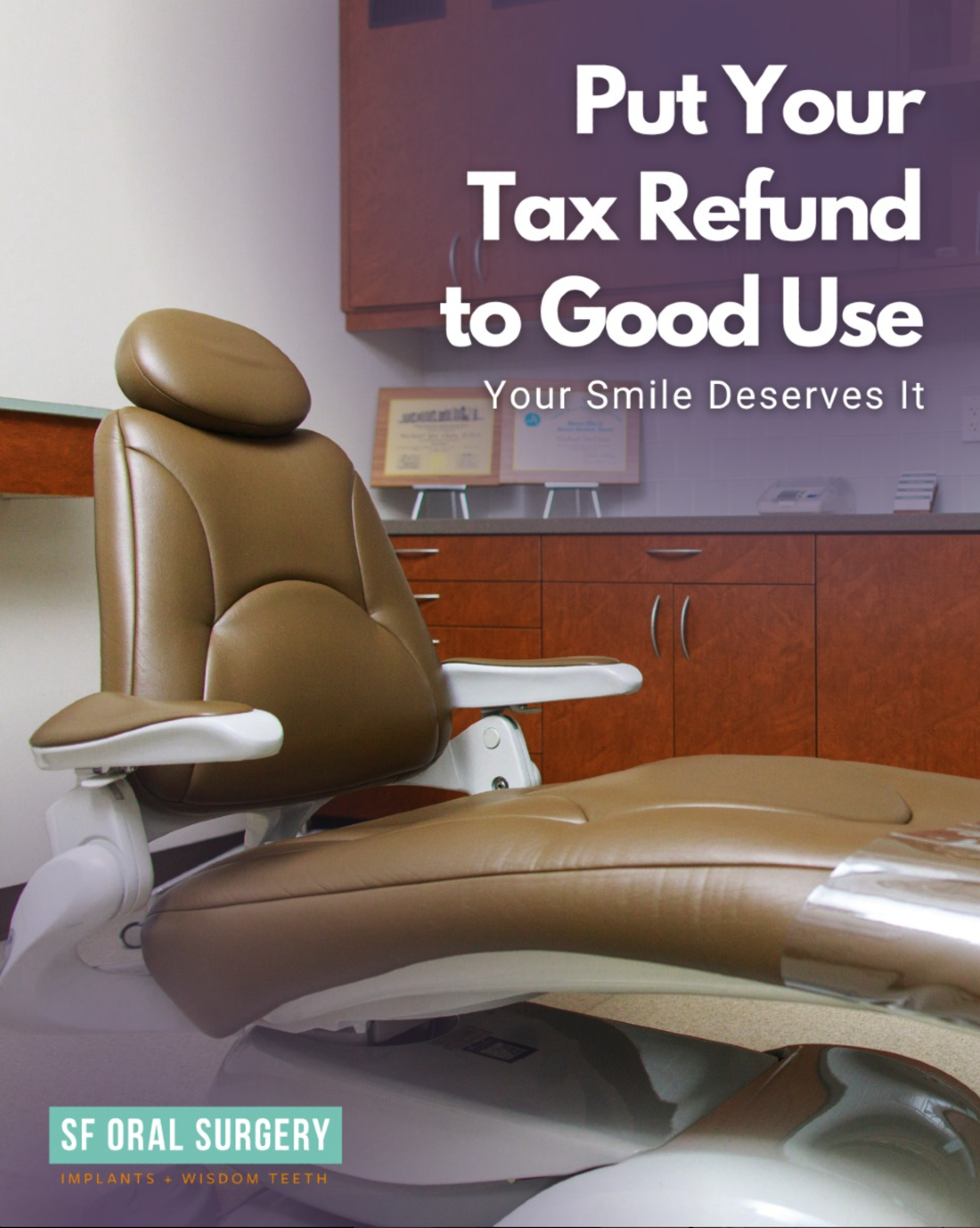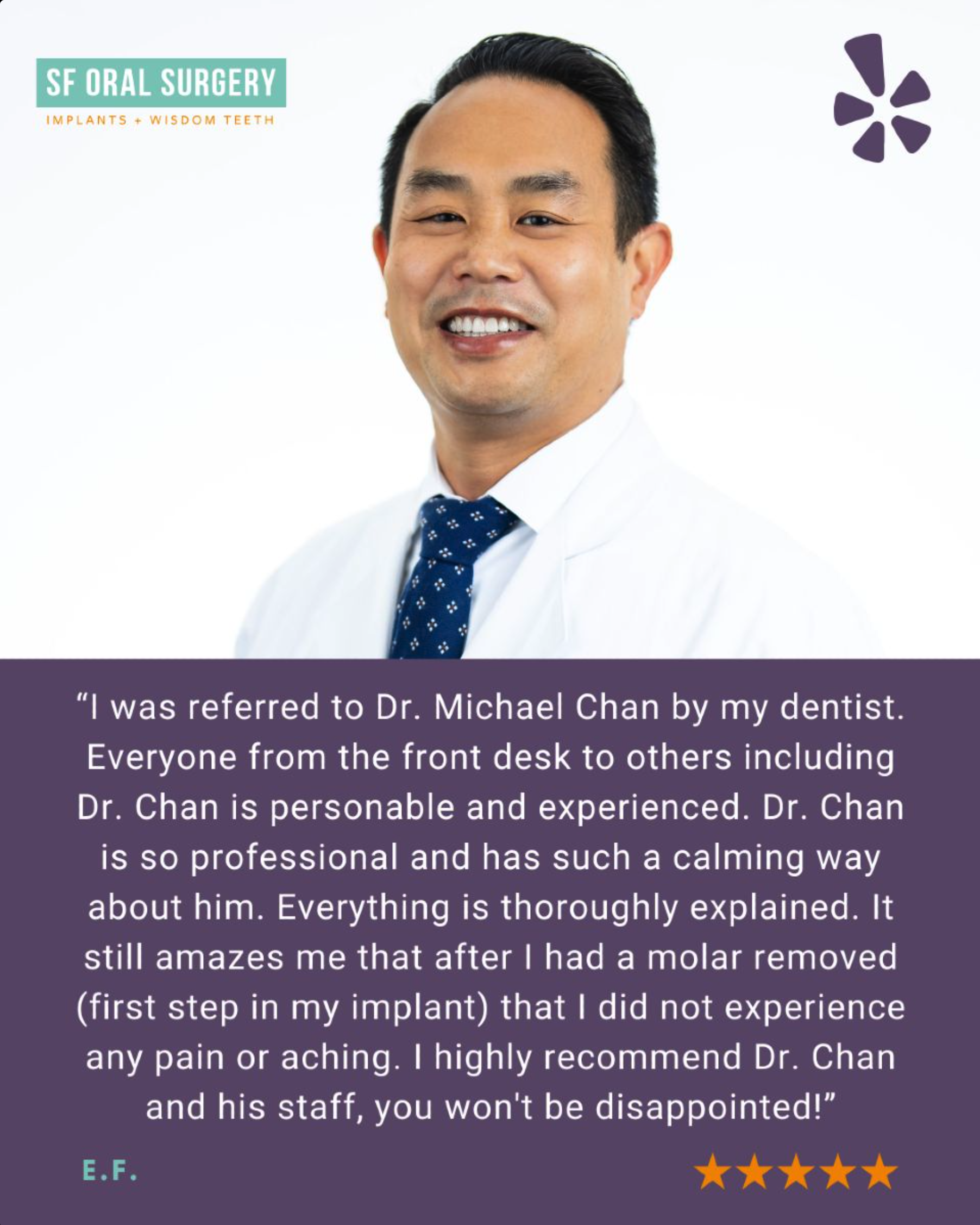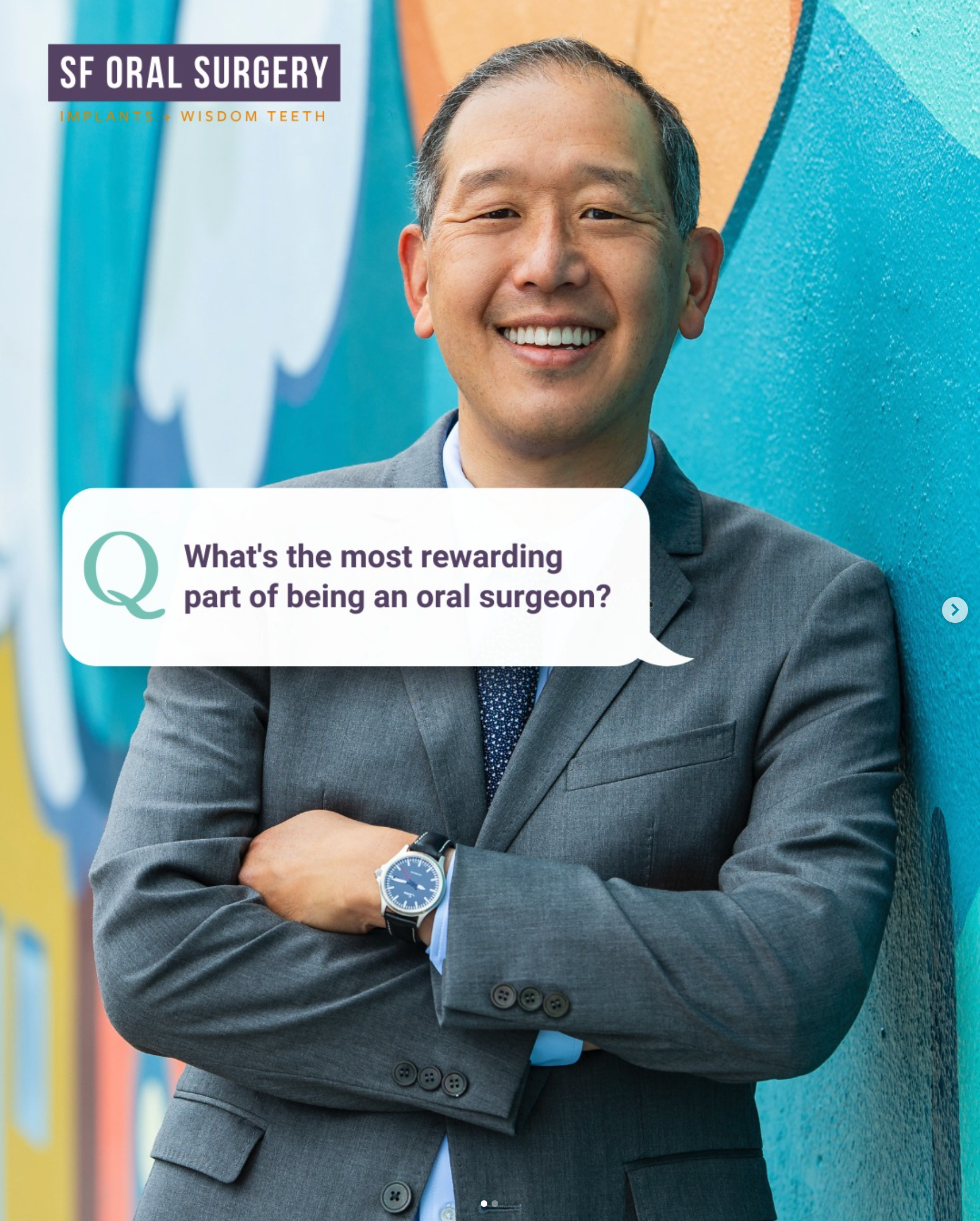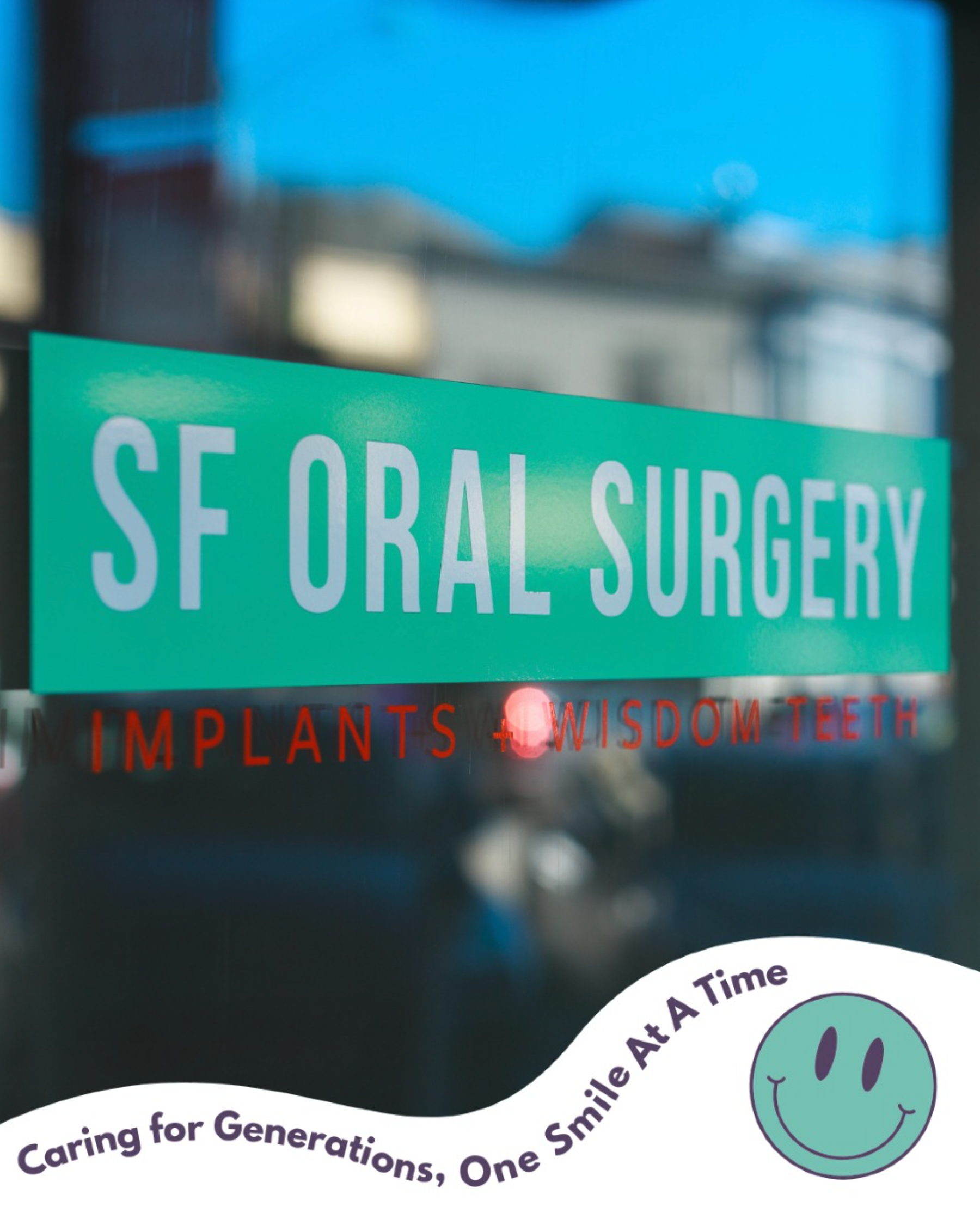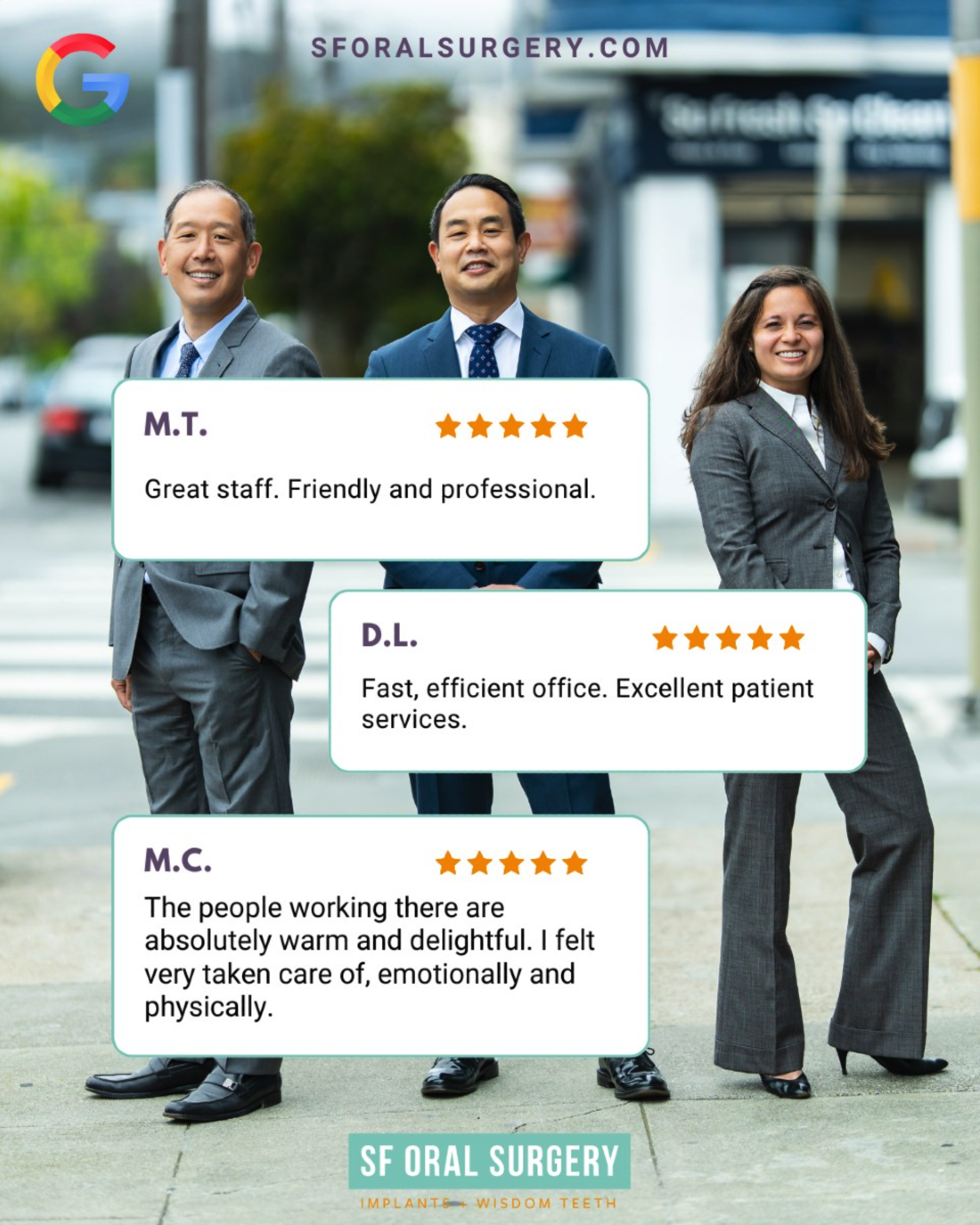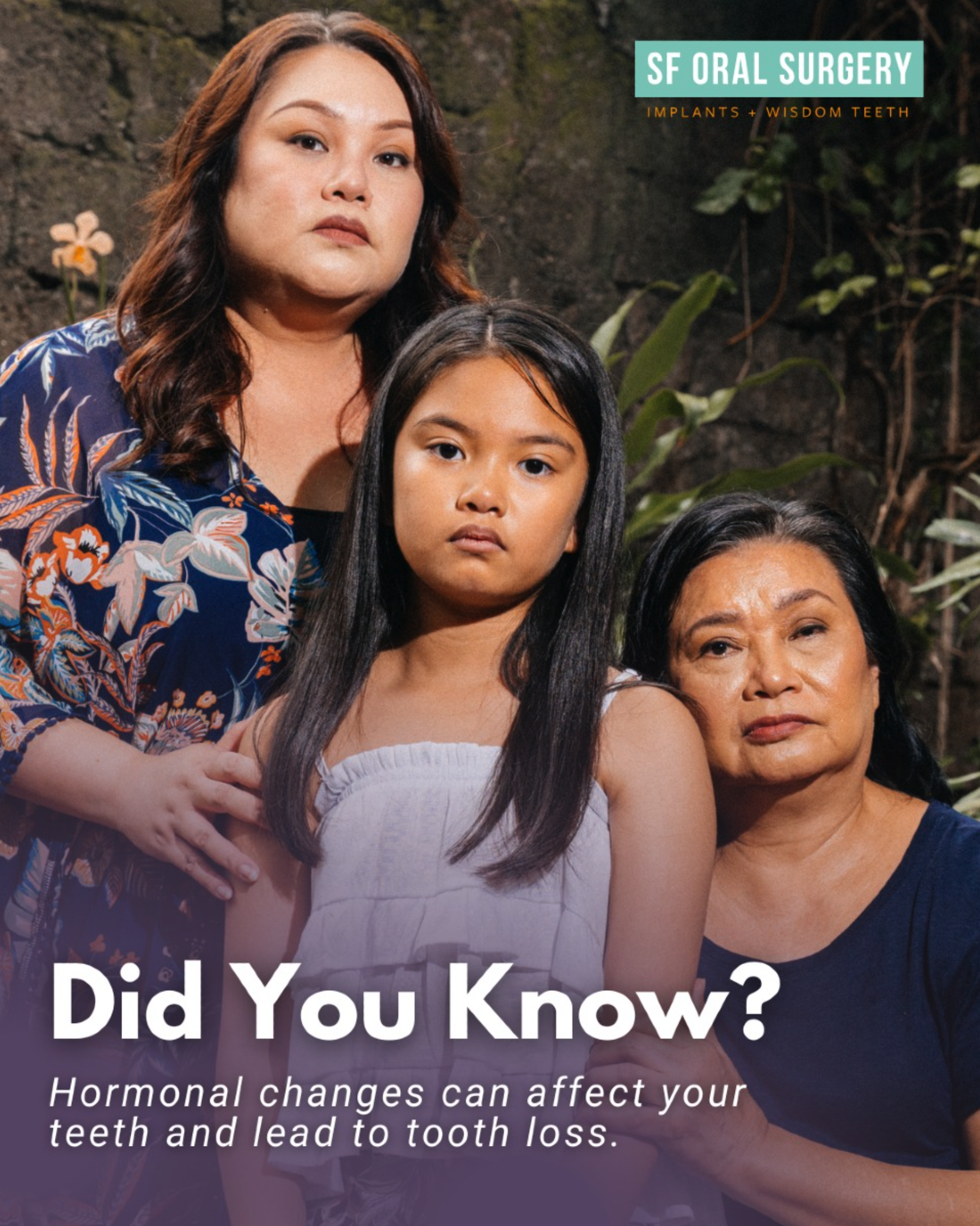San Francisco patients undergoing surgical procedures will discuss options for anesthesia prior to their procedure. Your choice of anesthesia is the first step to a successful and comfortable dental surgery.
Intravenous sedation is administered to relax patients and help the time pass during the surgical procedure. You will be able to respond to your oral surgeon, but, typically, you will not recall anything between when your surgeon administered sedation until shortly after the procedure.
To prepare for intravenous sedation you should:
- Not eat or drink anything for at least six hours before the appointment.
- Not smoke at least 12 hours before surgery. The more time that elapses between smoking and your surgery, the better.
- Bring a responsible adult who stays in the office during your surgery and then drives or accompanies you home.
- Not drive or operate machinery for the first 24 hours after anesthesia.
- Wear loose-fitting clothing with sleeves that can be rolled up past the elbow and shoes with little or no heel.
- Remove dentures, jewelry, and contact lens before surgery begins.
- Not wear makeup, including nail polish and lipstick, on the day of your surgery.
- Notify our office if you have a cold, sore throat, upset stomach, or any other illness.
- Check with Dr. Michael Chan, Dr. Kirsten Rittenbach, or Dr. Brian Yang about instructions for taking your normal oral medications on the day of surgery.
Immediately After Surgery
Bleeding
It is normal to experience some bleeding after any oral surgery for the first 24-48hrs. While a little bleeding or blood mixed in the saliva is normal, excessive bleeding can be controlled by applying and reapplying gauze directly over the surgical site and biting down for 1.5-2 hours. This step should be repeated until the bleeding subsides. If you continue to bleed, you can use a tea bag instead of a gauze pad.
All exercise, sitting up, and excitement should be avoided until you have begun to heal. Drinking from a straw, changing the gauze too often and talking can also disrupt your surgical site. If you have followed all of these instructions and still experience bleeding, call SF Oral Surgery immediately for further instructions.
Clotting
Once the bleeding has stopped, a blood clot will form over your surgical site. This is a normal part of healing, and you should avoid touching the blood clot with your tongue. To keep the blood clot intact you should avoid eating or drinking hot food or liquid, drinking through a straw, rinsing your mouth or brushing your teeth for 24 hours after surgery. If you drink alcohol or smoke, these activities should be avoided for 72 hours. Exercise should be limited for a few days after surgery and only continued when you begin to improve.
Swelling
Another common symptom of surgery is swelling. You will not have much initial swelling until the day after your surgery, and this will typically peak the 3rd– 4th day after surgery and then resolve thereafter. To reduce this swelling, you should immediately apply ice packs repeatedly to the side of your face. It is crucial to apply ice continuously for the first 36-48 hours after surgery to minimize swelling.
After 36 hours, you should switch to moist heat to reduce swelling. Your swelling may continue for several days. Jaw stiffness is also normal for the first few weeks.
Bruising
Some patients will experience bruising after swelling has gone down. This is normal and is likely to occur 2-3 days after your surgery. To improve your comfort, you can apply moist heat to the area.
Pain
You will begin to feel some pain when the local anesthesia starts to wear off. When you start to regain feeling, you should take your first dose of pain medication. One or two Tylenol or Tylenol extra strength are recommended to manage moderate pain. You can take this medication every 3-4 hours as needed. If you do not want to take Tylenol, you can take 2-4 tablets of 200 mg Advil or Motrin (ibuprofen) every 6-8 hours instead.
For patients who undergo more extensive surgery, Dr. Michael Chan, Dr. Kirsten Rittenbach, or Dr. Brian Yang will prescribe pain medication to reduce discomfort for the first few days after surgery. This should be taken as directed and you should inform your oral surgeon of any allergies. This medication will relieve pain, but will also cause you to feel drowsy. You should not drive a vehicle or operate machinery after taking this medication. If your pain does not begin to fade after a few days, you should call SF Oral Surgery.
Antibiotics
You may be prescribed antibiotics to minimize and prevent the risk of infection as well as speed your healing. Take this medication as instructed by your Oral Surgeon. If you develop a rash or other adverse reaction, you should stop taking the antibiotic and call SF Oral immediately.
Oral Hygiene
On the day of your surgery, you should not rinse your mouth, brush your teeth or spit at least 24 hours following surgery and you should avoid touching the wound. The day after surgery, you can both rinse and gently brush your teeth, but remember to be gentle and avoid disturbing your surgical site. Rinsing your mouth with warm saltwater (1 teaspoon per cup of water) 5-6 times per day will help keep your surgical site clean, especially after eating.
If you had an implant placed, you may need to rinse with Peridex Oral Rinse for at least 30 seconds the day after your surgery in the morning following breakfast and in the evening before going to sleep. Also, a healing abutment will be visible through your gums and your gum tissue will need to heal around it.
Irrigating (Typically for lower wisdom teeth)
If you were given an irrigation syringe, you may begin irrigating the lower surgical sites using warm saltwater STARTING ON THE 3RD DAY AFTER SURGERY. Be sure to place the curved tip of the irrigating syringe DIRECTLY INTO THE WOUND about ½ inch inside the opening to facilitate flushing out of any debris/food. It may be helpful to use a spoon or spoon handle to pull the cheek out for improved vision and access. It is advised that you irrigate the sites until the saltwater becomes clear and free of debris. Use the syringe after every meal until the wound(s) closes, which might take 4-6 weeks.
Smoking
Do not smoke for a minimum of 1 week, until healing is well established. Smoking can cause delayed healing, dry sockets, and increased post-surgical pain.
Sutures
Occasionally sutures are placed. The most commonly used sutures are the slowly dissolving type. Although you may feel them with your tongue, it is best to leave them alone until they dissolve or are removed in the office. In some cases non-dissolvable sutures are placed and they will need to be removed by your doctor a few weeks after the surgery.
Nausea and Vomiting
Nausea is not an uncommon occurrence following IV anesthesia. This can be related to 1) side effects of the IV medications, 2) swallowing of blood, 3) side effects of the prescribed medications. Do not eat, drink or take prescribed medication if you are vomiting or nauseous after surgery. Instead, wait at least one hour for the feeling to subside. At this point, you can sip a carbonated beverage such as 7-Up, or Ginger Ale over a period of 15 minutes. You should lay still and minimize ambulation and simply rest. If you are bleeding, follow the instructions for bleeding control. If the pain is not severe, try to take Tylenol instead of the prescribed pain medication. If problems persist, call SF Oral immediately.
When you feel better, begin your normal routine of prescribed medication, food, and drink.
Diet
After your surgery, you should maintain a diet of soft foods and liquids that are cool or room temperature for the first couple of days (soups, smoothies, pasta, porridge). You may advance your diet as tolerated the following day. You should not chew on the side of your surgical site until it has healed. Drink plenty of liquids to aid healing, but you should avoid hot foods and liquids while recovering, as this will increase bleeding and swelling. Avoid using a straw to drink until the bleeding stops, as this can cause additional bleeding. Instead, sip from a glass or use a spoon.
Physical Activity
Avoid excessive activity after surgery and remain inactive for 24 hours to prevent soreness and bleeding. If you start experiencing these symptoms while exercising, stop immediately. Avoid extraneous exercise or sports for about 3-4 days. Your lack of normal diet will inhibit exercise as well, because you will be weaker than usual until you have healed. Also, if you are taking pain medications and eating less food, you can get dizzy during any activity. Consult Dr. Michael Chan, Dr. Kirsten Rittenbach, or Dr. Brian Yang for more information about when to get back to your normal routine.
When to Wear Your Prosthesis
You should not put your prosthetic teeth in immediately after surgery. You will have some instructions prior to surgery, but Dr. Michael Chan, Dr. Kirsten Rittenbach, or Dr. Brian Yang will inform you when you can begin wearing your partial dentures, full dentures, or flippers.
Sinus Instructions
Sinus instructions are given to all patients who have a sinus opening during surgery or had a sinus lift procedure. These instructions are aimed at promoting rapid healing of the opening, avoiding sinus infection and decreasing the possibility for the need of future surgery to close the sinus opening.
- Because of the close relationship of the upper teeth to the sinus, occasionally when a tooth is extracted there will be a communication between the mouth and the sinus. If this was the situation in your case, then SF Oral Surgery would like you to follow the instructions below.
- Take your medication as directed.
- Do not blow your nose for two weeks
- Refrain from sneezing or increasing nasal pressure.
- Do not use a straw or smoke.
- Eat soft foods for several days, chewing on the opposite side as much as possible.
- Do not rinse your mouth vigorously for several days. Occasionally, there is a slight amount of bleeding from the nose for several days.
- The patient should have three prescriptions:
- Antibiotic
- Pain medication
- Antihistamine and/or Decongestant
- It is very important that the patient take all of their antibiotics as instructed. Unless the patient does so, the antibiotics will not be effective. The medication should not be discontinued unless it makes the patient nauseated or ill or if a rash develops. Please call us at once if this occurs.
- Do not hesitate to call our office if questions arise.
Getting Back to Normal
Keeping good oral hygiene habits is important for healing. You should continue brushing and flossing at least once a day 24 hours after surgery. This will remove all bacteria, speed healing, and lower the risk of infection. You will be able to return to your normal routine a few days after surgery.
Additional Complications
- Your tongue, cheek, chin, or lip may temporarily feel numb after surgery. Be cautious about chewing because you could inadvertently harm yourself.
- A small increase in body temperature is normal for the first 24-48 hours after surgery. You can take Tylenol or Ibuprofen for your fever. If your temperature increase persists after two days, call SF Oral Surgery for additional information.
- Be careful standing up quickly, you are likely not eating or drinking as usual and can get weak. You may also experience dizziness from pain medication.
- You may notice hard projections in your mouth after surgery. These bony walls normally smooth on their own as you heal. However, if they do not then Dr. Michael Chan, Dr. Kirsten Rittenbach, or Dr. Brian Yang can remove them.
- Keep your lips from cracking by applying moisturizing ointment to remain comfortable.
- Some patients will experience sore throats and pain when swallowing. These symptoms typically take 2-3 days to resolve.
- It may become difficult to open your mouth for a few days because of jaw stiffness. This will also correct itself a few days after surgery.
- Patients who have immediate dentures can develop sore areas. These will be corrected during your dentist visit 24-48 hours after surgery
Request A Consultation
Get To Know Your Team | Follow Us On Instagram

